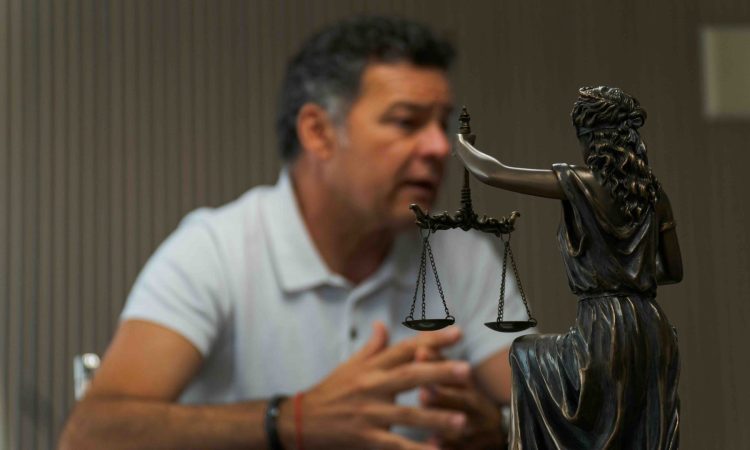
YOUR Legal Guide to making a Clinical Negligence Claim
Have you ever wondered when substandard care is classified as Clinical Negligence?
If you or a loved one has fallen ill or had an injury, and feel that your medical care was substandard or that a medical mistake has been made, a medical professional could be held accountable. This is a guide to understanding the steps you need to take before pursuing a claim for compensation.
What is Clinical Negligence: Clinical negligence (previously known as Medical Negligence) is substandard care that’s been provided by a medical professional to a patient, which has directly caused injury, caused an existing condition to worsen or in severe cases where it has directly caused death.
Clinical Negligence Claims can placed be against GPs, midwives, carers, nurses, therapists, surgeons, pharmacists, hospitals or dentists.
Many medical professional are required by their regulatory body to carry some form of professional indemnity insurance. This ensures that if they ever do make a professional mistake and a successful claim is made against them or their practice, the insurance policy pays out the compensation settlement (not the healthcare professional him/herself).
Clinical Negligence Claims can relate to:
- Delayed diagnosis or misdiagnosis, such as failure to diagnose appendicitis or ectopic pregnancy
- Medication errors
- Surgical errors
- Defective or incorrect size surgical implants or prosthesis
- Dental errors
- Poor aftercare, such as pressure sores or bedsores
- Care home claims
- Birth errors relating to the mother, such as perforation of the bowel after giving birth
- Birth errors relating to the baby, such as brain damage or cerebral palsy
- Cosmetic surgery errors
Steps to pursuing a successful Clinical Negligence Claim
- Keep a log in a notebook. Record everything you can including dates of appointments, costs to travel to appointments, days you had off work, symptoms, advice or medication the medical professional gave you, etc… It’s easy to forget these things in detail after a long period of time.
- Write a formal complaint directly to the organisation that you were receiving your medical care from. You need to do this within 12 months of the point where you realised your treatment was substandard.
- Review the practice’s response, you may find that an explanation is all you needed to understand the treatment you were given. If not, this document is critical for the claim process as it will list dates and details that you may not remember clearly.
- Choose a law firm that will take your case on a ‘No Win No Fee’ basis so you won’t have to pay anything up front, or if you don’t win your case. If the firm is confident you have a viable case, they should be willing to take the financial risk on your behalf.
- Contact a law firm that specialises in Clinical Negligence, not just personal injury. A good firm will have significant experience in assessing these types of cases so you don’t put yourself through the stress of a long legal case that you aren’t likely to win.
- Prove that the care you received was substandard, this is difficult as it means that you have to prove that no reasonably competent practitioner, in that particular field, would have made the same mistake. Remember not all mistakes are due to negligence. Some are unavoidable. If you have hired a competent clinical negligence solicitor they should be able to find an independent medical expert who is able to confirm if it was negligence.
- Prove that the suffering that occurred was specifically related to the substandard care or treatment. This is not easy, as you have to show that your suffering is not from the injury or illness itself, but that it has been caused by negligence of not being treated correctly. g. the difference between your pain and suffering now vs what it would have been be if you had been given correct medical care.
How long you have to make a Clinical Negligence Claim: Typically you have 3 years to make a clinical negligence claim, or later, from the date that you knew or ought to have known that your injury might have been caused by negligent treatment. E.g. if you had surgery and something was left inside you, but you weren’t made aware of it for quite a few months, than the clock starts from the date it was uncovered not the date the surgery happened.
The exceptions to that 3-year rule are:
- Claims for children have no time limit until they turn 18. Once they turn 18 the 3-year clock starts ticking. E.g. a child that is 13 you could make a claim for errors that happened during birth.
- Claims for adults without mental capacity have no time limit, until the point in time where they regain mental capacity.
How much will it cost to make a Clinical Negligence Claim? Here at Hopkins Solicitors we handle all of our Clinical Negligence cases on a ‘No win, no fee’ basis. This means that if we feel your claim is likely to succeed, we will take the case on at no initial cost to yourself. We only receive payment for our legal services once we win your case and a settlement payment has been made to you.
How a Clinical Negligence Claim settlement payment is calculated, e.g. how much you can expect to receive: The calculation is based on multiple factors throughout the course of your rehabilitation or potentially for the remainder of your life if rehabilitation isn’t possible. Factors include:
- Pain and suffering, both physical and mental
- Lost earnings
- Care costs, this does not have to be a professional Carer it can include time your family spends helping care for you or helping you with domestic chores
- Private therapy costs
- Medication or medical equipment costs
- Special dietary costs
- Housing or house modification costs
- Travel costs to appointments
- Vehicle modification costs
In some cases, we may be able to get you an ‘Interim Payment’. This is a partial payout made in advance of a full settlement to ensure you are able to afford the rehabilitation costs you are having to pay out of pocket for immediately. This is especially applicable to cases that look like they may take years to settle.
“Clinical Negligence is a complicated and highly specialised area of law. Solicitors who handle claims not only need a detailed knowledge of the legal system and the intricacies of proving liability against a medical professional, but who also have a working knowledge of medical care. This can only be acquired by a long period of training and experience. It is crucial that victims of Clinical Negligence appoint specialists in the field to handle their claim.”
– Ian Corbett, Head of Clinical Negligence, Hopkins Solicitors
Hopkins Solicitors offer a free initial consultation to help answer your questions and help you uncover if you may have a viable claim. This consultation can take place at any of our 4 offices in Mansfield, Sutton or Nottingham, or we are happy to come to your home or visit you in the hospital.
If you feel that you may have grounds to make a Clinical Negligence claim, please fill out the enquiry form below and one of our Clinical Negligence Legal Specialists will be in touch with you shortly.
Request a CallbackRelated Articles
-

A Day in the Life of a Personal Injury Solicitor at Hopkins Solicitors
When people ask me what it’s like to work in personal injury at Hopkins Solicitors, my answer is usually: “Every…
-

Why the UK Will No Longer Presume Contact With a Parent in Private Proceedings
For years, many people believed that UK family courts automatically favoured keeping both parents involved in a child’s life after…
-

Vulnerable Road Users: Understanding Your Rights and How We Can Help
At Hopkins Solicitors, our Personal Injury team recognises that some road users are at significantly higher risk of injury due…